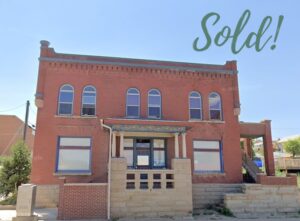The Commercial Sale Timeline
A commercial real estate sale’s timeline depends on a number of market factors like time of year, the market, and the investment. In this article, building owners will learn considerations for the selling process and understand how each factor affects the timeline. Like any significant business decision, working with a broker advisor you can trust, will go a long way in giving you an advantage in the commercial sale timeline.
Benefits of a Commercial Investment
Owning commercial property is a great investment, especially because the value of real estate’s annual return is much more lucrative than other investments. Other investments like stocks don’t offer the opportunity to directly affect value, as they’re market and time based. Some ways to build value into an investment and ultimately increase the return from a sale transaction are to improve the property, increase rental rates, or even apply for favorable zoning changes. Owning a commercial building also offers the advantage of owning both the land and structures on the property (there will always be good value in land). The market for commercial sales is stable with needs for office space, retail, storage, and production being fairly consistent.

Considerations for a Commercial Sale Timeline
When considering selling your commercial property, there are a few items to be mindful of that can have an impact on your transaction timeline.
Capital Gains Taxes
Selling any investment is exciting, because it brings cash flow! However that influx in capital comes capital gains tax considerations. Before selling a commercial building, we advise working with a financial advisor to plan for tax fees involved and build mitigation opportunities including options like a 1031 exchange.
Selling a Business & Property
Another consideration, when selling a building is if the sale is associated with an operating business – managing that business and commercial sale. An investor who owns both the property and the business will need to sell the company alongside the commercial real estate, or even consider shutting down the business. The unique aspect of selling commercial property and selling a business, is that it opens up the pool of potential buyers. A commercial broker can advise on how to position this type of sell and will work with a business broker to manage the transaction.
Curb Appeal Improvements
Another thing that will improve your pool of potential buyers and the timeline to sell, is adding to the curb appeal. Making small changes to the external character of the property can go a long way for a buyer. Think paint repairs, adding lighting, resealing the parking lot, or even landscaping.
Best Time to Sell Commercial Real Estate
There’s no absolute science to determine the ideal time to sell a building, but there are conditions that can be used to provide guidance to learn when selling commercial real estate may be the right decision. These items include the time of year, the market, and the investment itself.
Time of Year
The economic cycle is obviously going to play a role in a building sale. The expansion of the economy since the 2009 recession has been the longest on record and many experts are predicting a slowdown at least by 2021. Key indicators like cap rates and vacancy rates can help building sellers predict where the economy is trending and whether it is favorable for a sale.
The Market
Similar to the economy, market conditions move in cycles and key indicators can provide data on how the market is looking. Market comparables are a good determinant for what a seller can expect from selling commercial property. If comparables are showing upward trending cap rates, than there is the possibility for a great return. Again it is important to consider that these are only predictors of sales performance and not an absolute science.
The Investment Itself
Buildings with long term leases in place, represent a lower risk investment for a buyer. Buildings with leases coming due or too many short term leases, are more volatile for a buyer, and may deter them from a purchase. This is very similar to in business sales, when things are going really well and sales are up, that is a great time to sell and is a very attractive opportunity for a buyer.
To reiterate, there isn’t necessarily a specific time that is good to sell, commercial real estate buyers and sellers are more season agnostic. The combination of the economy and the fundamental financials of the investment will provide a better picture for disposition.
Commercial Building Sale Closing Timeline
It can be difficult to answer the question, “How long will a building sale to take?” But the first two weeks when a commercial real estate property is listed on the market can be tantamount to an efficient sale. Commercial real estate brokers keep a regular pulse on the market, and as such they check new listings daily to identify opportunities for their clients and keep abreast. Because of this it is key that building sellers put their best foot forward with their first market offer – this means price!
The commercial market is dictated by what a buyer is willing to pay for a property. If a property is listed at an unreasonable price, it will often go ignored by brokers and buyers. If you’re looking to sell your commercial property quickly, seriously consider the initial asking price and make sure it is in line with market comparables.
If you still have questions about the commercial sale timeline, we recommend speaking with a commercial broker to discuss your goals. Visit transworldcre.com for more information or call Transworld to speak with a broker.
Rachael Holstein is the Marketing Manager for Transworld Commercial Real Estate, a full service commercial real estate firm in Denver, Colorado. Her work experience has been largely focused on business development and marketing in business brokerage, finance, architecture, property management, and information technology. A long time resident of Cleveland, Ohio, she attained her undergrad from John Carroll University and her Master’s Degree from Cleveland State University. In 2013, she relocated to Denver with her husband, Joe, and her furry companions to explore the mile high lifestyle! Visit transworldcre.com for more information.


